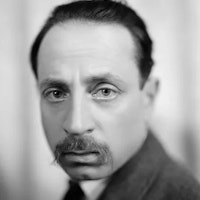Have patience with everything unresolved in your heart and… try to love the questions themselves…
Have patience with everything unresolved in your heart and… try to love the questions themselves…
Rainer Maria Rilke

Live the Questions
Topic: Spiritual Growth & Practice
I beg you, to have patience with everything unresolved in your heart and to try to love the questions themselves as if they were locked rooms or books written in a very foreign language. Don’t search for the answers, which could not be given to you now, because you would not be able to live them. And the point is to live everything. Live the questions now. Perhaps then, someday far in the future, you will gradually, without even noticing it, live your way into the answer.
Rainer Maria Rilke (1875-1926) was a renowned Austrian poet, recognized for his significant contributions to modern poetry. Born in Prague, then part of the Austro-Hungarian Empire, on December 4, 1875, he embarked on a literary journey that would leave an indelible mark on the world of letters. Rilke's early years were marked by a tumultuous childhood, characterized by strained family relations and frequent relocations. However, these experiences seemed to fuel his introspective and contemplative nature, evident in his later poetic works.
Rilke's poetry often delved into themes of existentialism, love, and the human condition. His writings, such as "Letters to a Young Poet" and the "Duino Elegies," are celebrated for their depth and exploration of inner life. Throughout his career, he traveled extensively, drawing inspiration from diverse cultures and landscapes, which enriched his poetic expressions. His lyrical and introspective style, combined with a profound sense of spirituality, continues to resonate with readers, making Rilke an enduring luminary in the world of literature. Rainer Maria Rilke passed away on December 29, 1926, leaving behind a legacy of poetic brilliance that continues to inspire and provoke contemplation to this day.
Letters to a Young Poet
Rilke, Rainer Maria. "Letters to a Young Poet." Trans. M. D. Herter Norton. Revised edition. Norton, New York, 1954. 50. Print.

Rainer Maria Rilke
Theme: Spiritual Growth

About This Rainer Maria Rilke Quotation [Commentary]
Rainer Maria Rilke’s counsel, “Have patience with everything unresolved in your heart and… try to love the questions themselves… Don’t search for the answers,” invites us to embrace uncertainty as a part of spiritual growth. Rilke advises us not to rush toward conclusions but to allow these questions to exist, trusting they may reveal meaning over time. To love the questions is to accept that not every query needs an immediate resolution; understanding often emerges slowly through the experiences of life.
By encouraging us to “live the questions,” Rilke highlights a path of inner transformation where growth arises not through certainty but by engaging fully with the unknown. Living alongside our questions opens us to insights that only come with time and reflection. His words echo contemplative wisdom, urging a spirit of acceptance and openness where true understanding naturally unfolds without control or predetermination.
Rilke’s insight suggests that mysteries of the heart are best understood through patience and presence. Lovingly attending to our questions teaches us to navigate life’s uncertainties with resilience, reframing them as companions rather than obstacles. This gentle surrender fosters a quiet trust in the process, allowing wisdom to emerge in its own time and honoring the depth of our human experience.
Maria Popova’s Commentary About Rilke’s “Letters to a Young Poet”
Letters to a Young Poet by Rainer Maria Rilke (December 4, 1875–December 29, 1926). In this thoroughly elevating modern classic, the beloved poet makes a beautiful case for the importance of living the questions, embracing uncertainty, and allowing for intuition.
In a 1903 letter to his protégé, the 19-year-old cadet and budding poet Franz Xaver Kappus, Rilke writes:
In another letter from November of the following year, Rilke revisits the subject:
Additional Rainer Maria Rilke Poem with Commentary by Parker L. Palmer
Here’s a Rainer Maria Rilke poem that I find full of meaning—despite the fact that it’s one of the shortest poems I know. With highly distilled wisdom it reminds us that…
• We yearn “not to be cut off” from the source…
• Our inner lives are as vast and worthy of exploration as outer space…
• What we all seek is a sense that we’ve come home…
• Home is to be found “in here,” not somewhere “out there”…
• Our inner home is a place of beauty, “hurled through with birds and deep/with the winds of homecoming”…
And Rilke does it all in 39 words, about one-third of the number I used to write this post. Amazing!
—Parker J. Palmer (November 23rd, 2013).
Resources
Related Quotes
Copyright © 2017 – 2026 LuminaryQuotes.com About Us